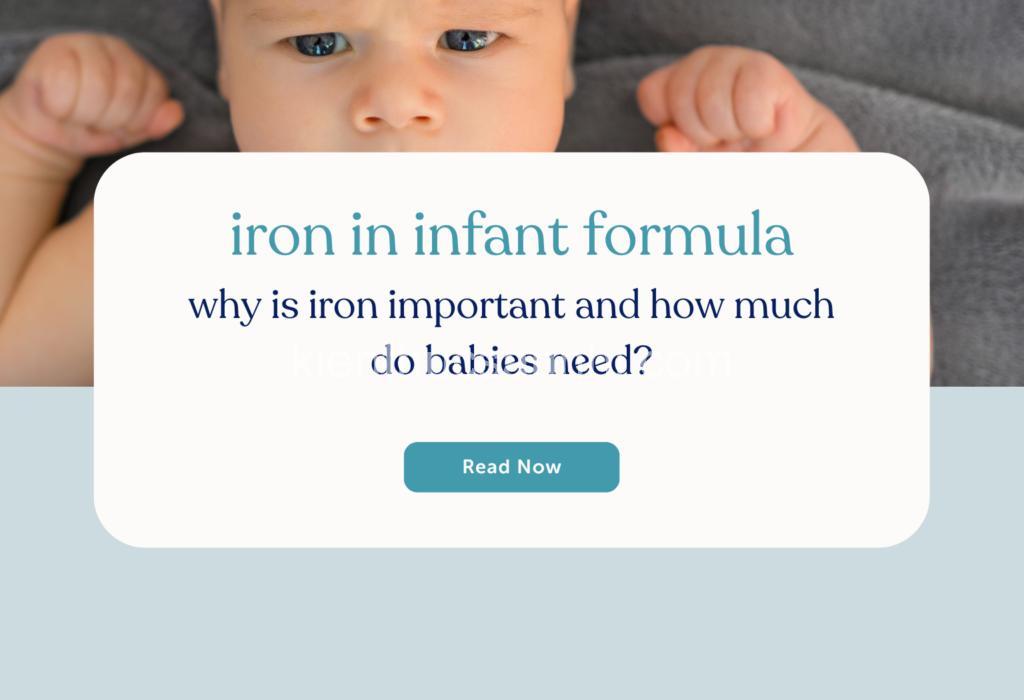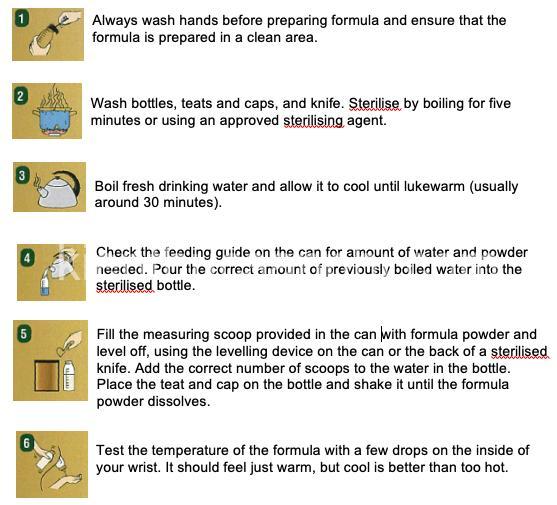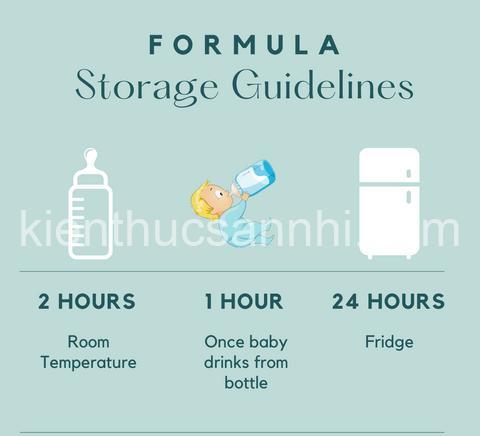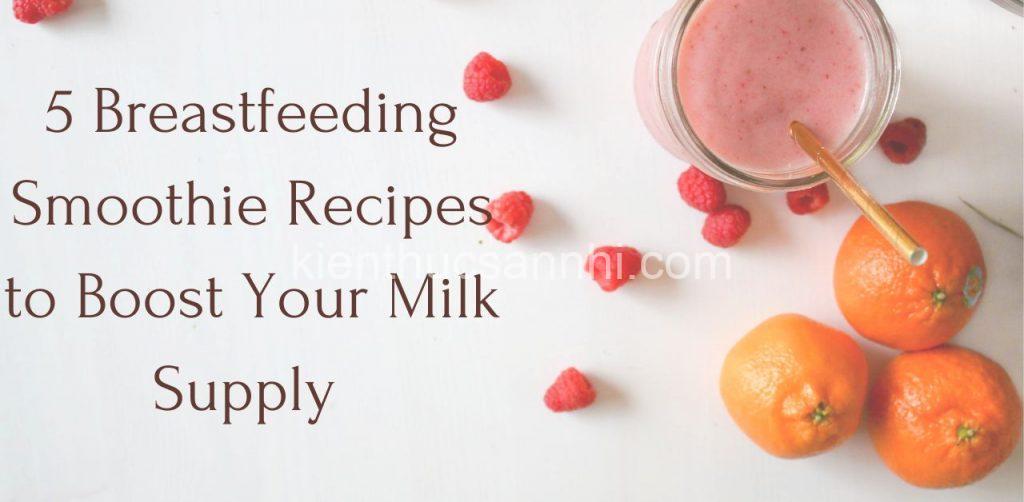
Iron in Infant Formula: Why It’s Essential for Baby Development. In today’s article, kienthucsannhi.com will explore with you in the most detailed and complete way. See now!
Why Iron is Essential for Infant Development
Iron is a vital mineral that plays a crucial role in your baby’s growth and development. It’s the key component of hemoglobin, the protein in red blood cells responsible for carrying oxygen throughout the body. This means iron is essential for:
-
Supporting Growth and Development: Without enough iron, your baby’s body can’t produce enough red blood cells to carry oxygen to all their vital organs. This can lead to slowed growth and developmental delays.
-
Promoting Brain Development: Iron is crucial for brain development and cognitive function. Adequate iron levels are essential for myelin production, a fatty substance that insulates nerve fibers and enables efficient communication between brain cells.
-
Strengthening the Immune System: Iron is also a key player in the immune system. It helps produce white blood cells, which are essential for fighting infections. A lack of iron can make your baby more susceptible to illnesses.
Why Iron is Added to Infant Formula
While breast milk is the ideal food for babies, it naturally contains low levels of iron. This is why iron is added to infant formula to ensure that your baby gets the essential amount they need for healthy growth.
-
Meeting Infant Iron Requirements: The recommended daily iron intake for infants varies based on age. Formula manufacturers carefully tailor the iron content in their products to meet these requirements.
-
Different Types of Iron: There are different forms of iron used in infant formula, including ferrous sulfate and iron polymaltose. Each type has its own advantages and disadvantages regarding absorption and potential side effects.
Understanding Iron Absorption and Bioavailability
Even with iron added to formula, the body’s ability to absorb this essential mineral can vary.
-
Factors Affecting Iron Absorption: Several factors can influence iron absorption, including:
- Vitamin C intake: Vitamin C enhances iron absorption.
- Presence of tannins and phytates: These substances found in some foods can hinder iron absorption.
- Other nutrients in formula: The presence of other nutrients in formula can impact iron absorption.
-
Iron Bioavailability in Formula: The bioavailability of iron, or how much your baby’s body can actually absorb, can vary depending on the type of formula and its ingredients.
Iron Deficiency in Formula-Fed Infants
Despite the addition of iron to formula, iron deficiency can still occur in formula-fed infants. This is because factors like insufficient iron intake, poor absorption, or premature birth can increase the risk.
-
Signs and Symptoms of Iron Deficiency: Be aware of the following signs and symptoms of iron deficiency in your baby:
- Pale skin
- Fatigue
- Irritability
- Slow growth
-
Causes of Iron Deficiency: Iron deficiency can result from:
- Insufficient iron intake: If your baby isn’t getting enough iron from their formula.
- Poor iron absorption: Factors like low vitamin C intake or the presence of tannins and phytates can interfere with iron absorption.
- Premature birth: Premature babies have smaller iron stores and may need extra iron supplementation.
-
Diagnosis and Treatment: If you suspect iron deficiency, consult your pediatrician. They can perform blood tests to confirm the diagnosis and recommend appropriate treatment. This may involve iron supplements or dietary changes.
When to Consult a Healthcare Professional
It’s always best to consult your pediatrician for guidance on your baby’s feeding practices and any concerns about iron deficiency. They can provide tailored advice based on your baby’s individual needs and health history.
Questions to Ask Your Pediatrician:
- What is the recommended iron intake for my baby based on their age?
- Is my baby getting enough iron from their formula?
- Are there any foods I can introduce to my baby to help with iron absorption?
- What are the signs and symptoms of iron deficiency I should be aware of?
- Should my baby be screened for iron deficiency?
Resources and Further Information
For more information on infant nutrition, iron deficiency, and formula feeding, you can consult reputable sources like:
- The American Academy of Pediatrics: [Link to AAP website]
- The World Health Organization: [Link to WHO website]
- Your pediatrician’s website: [Link to pediatrician’s website]
Key Takeaways
Iron is an essential mineral for your baby’s healthy growth and development. While breast milk is the ideal food source, infant formula is fortified with iron to ensure adequate intake.
Remember to consult your pediatrician for guidance on your baby’s feeding practices and any concerns about iron deficiency.
Conclusion:
Iron plays a crucial role in your baby’s growth and development, so understanding how it works in infant formula is important for parents. If you have any questions or concerns, remember to consult your pediatrician for personalized advice. Keep exploring our website, kienthucsannhi.com, for more valuable information on pet care and animal topics.
Don’t hesitate to share this information with other parents and caregivers. Let’s make sure all babies get the nutrients they need for a healthy start in life!
Michael David Smith, Animal Enthusiast and Owner of kienthucsannhi.com

EAVs:
- Iron – Form – Ferrous Sulfate
- Iron – Form – Iron Polymaltose
- Infant Formula – Iron Content – Variable (mg/L)
- Breast Milk – Iron Content – Low
- Infant – Iron Requirement – 0.27 mg/kg/day (0-6 months)
- Infant – Iron Requirement – 11 mg/day (7-12 months)
- Iron – Absorption – Affected by Vitamin C
- Iron – Absorption – Affected by Tannins
- Iron – Absorption – Affected by Phytates
- Iron Deficiency – Symptoms – Pale skin
- Iron Deficiency – Symptoms – Fatigue
- Iron Deficiency – Symptoms – Irritability
- Iron Deficiency – Symptoms – Slow growth
- Iron Deficiency – Cause – Insufficient intake
- Iron Deficiency – Cause – Poor absorption
- Iron Deficiency – Cause – Premature birth
- Hemoglobin – Function – Oxygen transport
- Cognitive Function – Requirement – Iron
- Brain Development – Requirement – Iron
- Immune System – Requirement – Iron
EREs:
- Iron (E1) – Is a component of – Hemoglobin (E2)
- Iron (E1) – Is essential for – Brain Development (E2)
- Iron (E1) – Supports – Immune System (E2)
- Infant Formula (E1) – Contains – Iron (E2)
- Breast Milk (E1) – Contains – Low iron (E2)
- Infant Formula (E1) – Can cause – Iron Deficiency (E2)
- Iron Deficiency (E1) – Leads to – Anemia (E2)
- Iron (E1) – Absorption is influenced by – Vitamin C (E2)
- Iron (E1) – Absorption is affected by – Tannins (E2)
- Iron (E1) – Absorption is influenced by – Phytates (E2)
- Infant (E1) – Requires – Iron (E2)
- Iron Deficiency (E1) – Causes – Fatigue (E2)
- Iron Deficiency (E1) – Causes – Pale skin (E2)
- Iron Deficiency (E1) – Causes – Irritability (E2)
- Iron Deficiency (E1) – Causes – Slow growth (E2)
- Premature Birth (E1) – Increases risk of – Iron Deficiency (E2)
- Hemoglobin (E1) – Carries – Oxygen (E2)
- Cognitive Function (E1) – Depends on – Iron (E2)
- Brain Development (E1) – Depends on – Iron (E2)
- Immune System (E1) – Requires – Iron (E2)
Semantic Triples:
- (Iron) – (Is a component of) – (Hemoglobin)
- (Iron) – (Is essential for) – (Brain Development)
- (Iron) – (Supports) – (Immune System)
- (Infant Formula) – (Contains) – (Iron)
- ( Breast Milk) – (Contains) – (Low iron)
- (Infant Formula) – (Can cause) – (Iron Deficiency)
- (Iron Deficiency) – (Leads to) – (Anemia)
- (Iron) – (Absorption is influenced by) – ( Vitamin C)
- (Iron) – (Absorption is affected by) – ( Tannins)
- (Iron) – (Absorption is influenced by) – ( Phytates)
- (Infant) – (Requires) – (Iron)
- (Iron Deficiency) – (Causes) – (Fatigue)
- (Iron Deficiency) – (Causes) – (Pale skin)
- (Iron Deficiency) – (Causes) – ( Irritability)
- (Iron Deficiency) – (Causes) – ( Slow growth)
- (Premature Birth) – (Increases risk of) – (Iron Deficiency)
- (Hemoglobin) – (Carries) – ( Oxygen)
- (Cognitive Function) – (Depends on) – (Iron)
- (Brain Development) – (Depends on) – (Iron)
- (Immune System) – (Requires) – (Iron)







